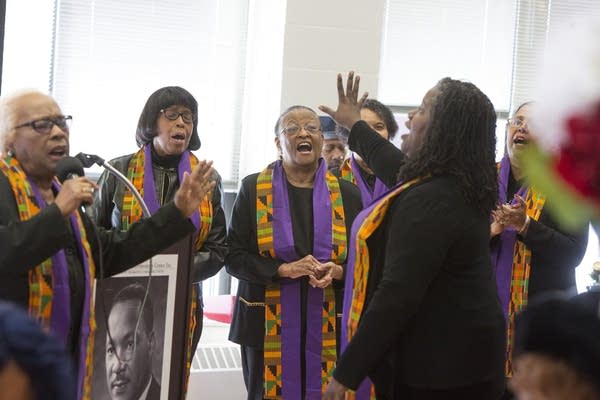St. Paul music academy to expand its dementia-friendly chorus

Members of the Amazing Grace Chorus — a dementia-friendly chorus organized by the Walker|West Music Academy in St. Paul.
Courtesy of the Walker|West Music Academy
Go Deeper.
Create an account or log in to save stories.
Like this?
Thanks for liking this story! We have added it to a list of your favorite stories.


